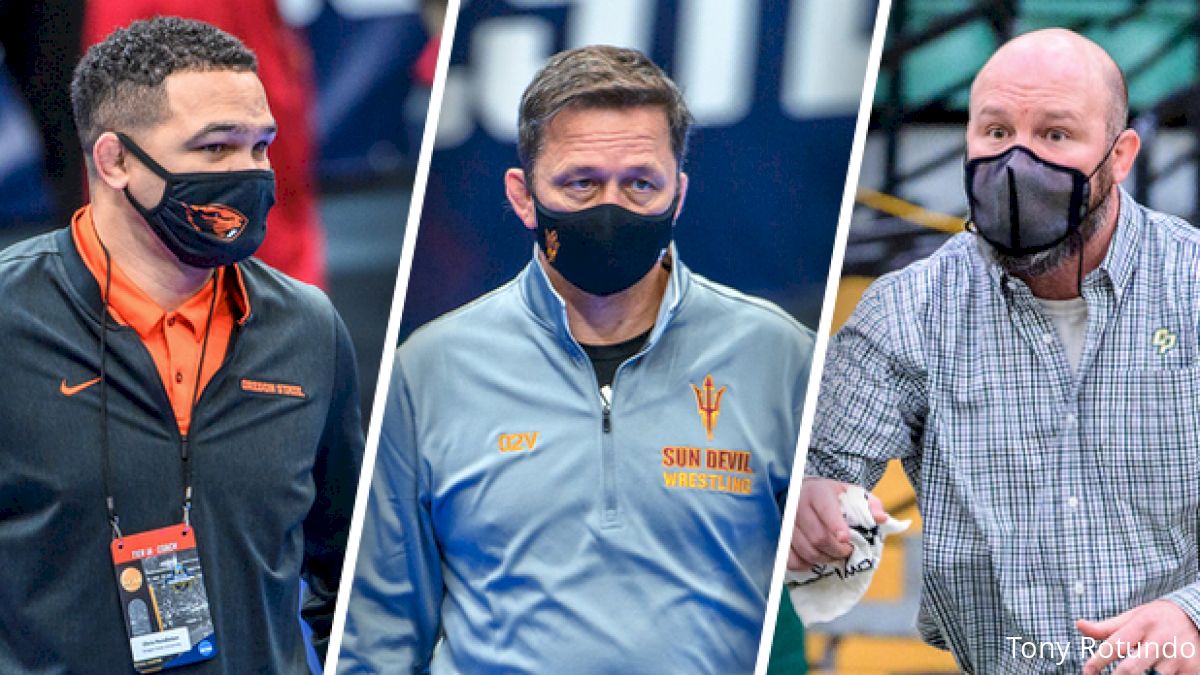Pac-12 Coaches Fight For The Future Of West Coast Wrestling
Pac-12 Coaches Fight For The Future Of West Coast Wrestling
Zeke Jones, Chris Pendleton and

Unlock this article, live events, and more with a subscription!
Already a subscriber? Log In
The Pac-12 conference is filled with traditional programs. Even though the power five schools headline it, Pac-12 affiliates have provided a strong foundation for the conference too.
“The Pac-12 conference has always been intriguing. There's a couple of big-budget Pac-12 schools and there are the affiliates,” Cal Poly head coach, Jon Sioredas, said. “Yet, the affiliates have a tremendous amount of tradition. Not just Cal Poly, but Cal State Bakersfield has done well too.”
Although the conference had one of its best performances in recent NCAA history, the Pac-12 is at a pivotal moment. Currently, Stanford is on the verge of cutting its wrestling program, leaving five schools remaining in the Pac-12.
Although Stanford faces the toughest punishment, it is a heavy blow for the rest of the Pac-12. After all, these Pac-12 coaches are watching a top-20 program with multiple All-Americans and a national champion slowly disappear. When Shane Griffith won the national title, it was not just a win for Stanford, it was a win for the Pac-12 and the wrestling community.
“It was really moving to be there without having a capacity crowd, and to still get some loud chants and the ESPN time,” Sioredas said. “I know as a fan, and as a fellow Pac-12 coach, I love those guys up there.”
“Everybody was rooting for Shane Griffith, even ourselves,” Arizona State head coach, Zeke Jones, said. “We knew the importance of him and Stanford wrestling.”
If Stanford cannot return to the Pac-12, the conference will be on the ropes for losing an automatic qualifier. Currently, the conference is debating whether they will get a one-year or two-year grace period. If the committee cannot find a team in that time, Pac-12 wrestlers will enter the tournament with at-large bids.
“It will be tough for all the schools in the conference if we do not have an automatic qualifier,” Jones said.
Although Stanford turned the conference upside down, the Pac-12 looks to flip the momentum back and expand wrestling in the West. Since the end of the NCAA tournament, Pac-12 coaches met with multiple committees to discuss the future of the conference.
Every time you pick a fight with wrestling, wrestling fights back.
According to Jones, the NCAA does not look at the West as a dying area, but as a growth opportunity. Plus, the NCAA is trying to put the West Coast on the same playing field as the East and Midwest. Oregon State’s head coach, Chris Pendleton agrees that the West Coast is rising up the ranks too.
“I keep telling people our sport is actually growing on the West Coast,” Pendleton said. “Obviously, the decisions made at Stanford and Fresno State were a tough pill to swallow, but before the COVID situation, we were expanding.”
The coaches pushed expansion talks in recent meetings, discussing how being a part of the Pac-12 is beneficial to a school.
“It's important to put together a sales pitch and show what the PAC-12 can bring to some of these schools,” Sioredas said. “For example, a Pac-12 championship, having the opportunity to host, voting rights, streaming rights, and deals.”
Besides plenty of benefits for the schools, wrestlers on the West Coast can be more inclined to compete in the West. The Pac-12 conference can push past the West Coast borders too, extending into the Rockies or Midwest. Therefore, the West Coast can truly face off against the powerhouses of the East and Midwest.
Overall, the Pac-12 looks to continue to bring excitement in the sport.
“Every time you pick a fight with wrestling, wrestling fights back and can create energy and excitement,” Jones said.